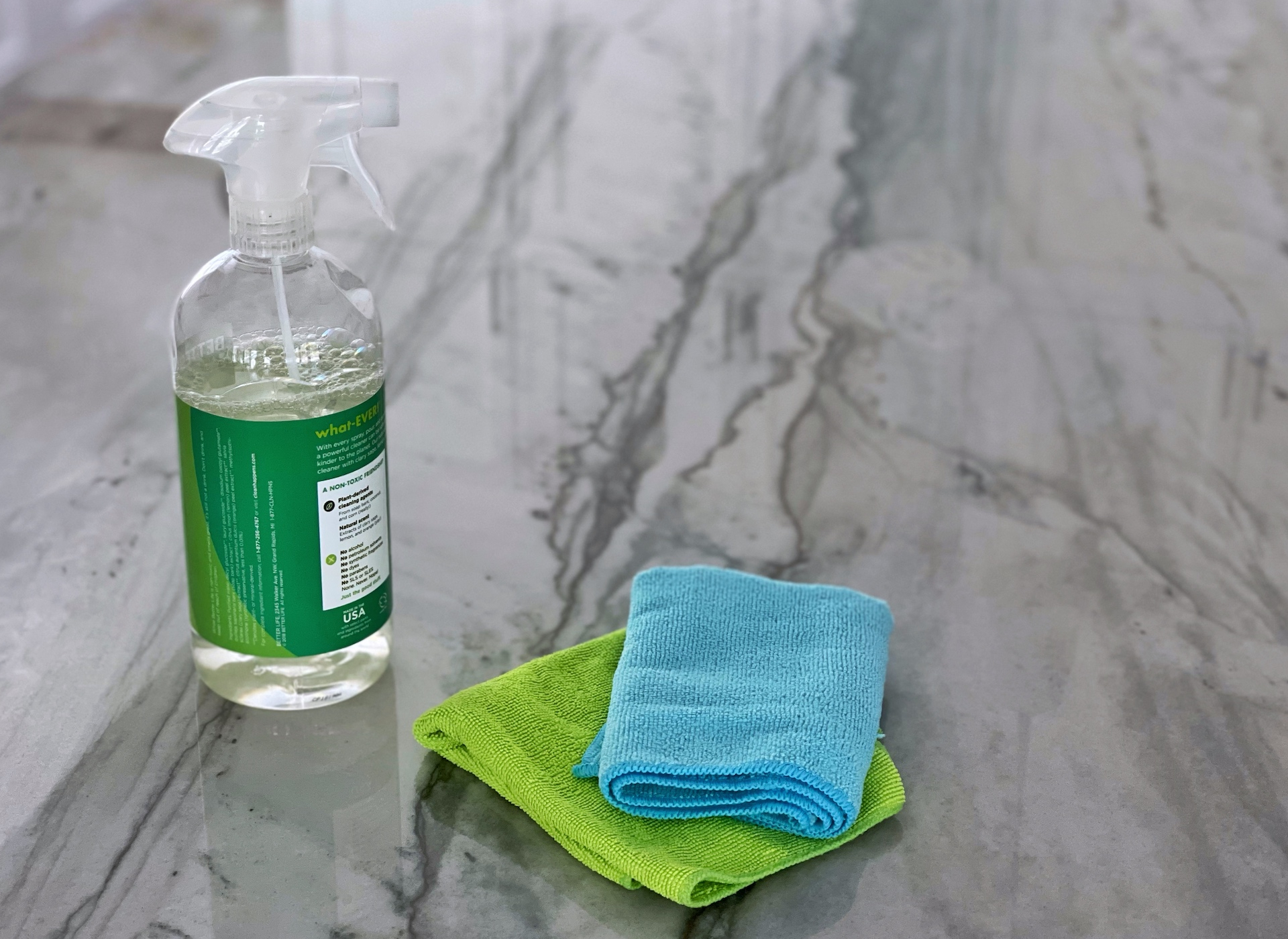Once you’ve invested in remodeling your kitchen or bathroom, proper countertop maintenance will keep them clean and looking great while extending the lifespan of your investment.

Regular cleaning and care vary depending on the countertop material and whether it’s treated or sealed. As with any surface, periodic cleaning with mild soap and water is recommended. Clean up any spills as soon as possible to avoid stains. Avoid damaging or discoloring the surface by first testing any cleaning agent on an inconspicuous area of the counter.
While there are plenty of products marketed for cleaning granite counters, dish soap and water are all you need. Use a microfiber cloth to shine its glossy surface.
Use mild dish soap to clean your marble counters. Avoid anything with harsh acidic cleaners, vinegar, ammonia, or abrasives that will etch the finish of your marble countertop.
Dish soap, water, and a soft cloth are all you need to maintain soapstone regularly. Soapstone is soft, so avoid abrasive cleansers or scrubbing pads.
Quartz counters are probably the easiest to maintain. Non-porous quartz repels stains, so soap, water, and a soft cloth will keep these counters clean.
As in any professional kitchen, stainless steel countertops make quick and easy cleanup with soap and water. A brushed finish will downplay scratches, smudges, and fingerprints. Shinier stainless will need polishing to keep its sheen.
Concrete countertops require a high level of maintenance. Because concrete is porous, reseal counters regularly to repel stains and bacteria. For daily cleaning, wash with dish soap and water. Avoid cleaners with bleach, vinegar, lemon, or other acids that will etch the concrete.
Butcher block counters are easy to keep clean. For regular cleanup use soap (or vinegar) and water. Wood is porous and, if you’re using your butcher block counter as a chopping surface, your countertop will begin to show its wear and tear with cuts and stains. To minimize the impact and keep the surface looking its best, you should seal the wood monthly with a light application of food-grade mineral oil. The oil freshens up the look of the wood and helps the surface repel stains and bacteria. After years of use, you can sand down the surface of the butcher block to reveal a “new” counter. Apply a fresh seal before using.
